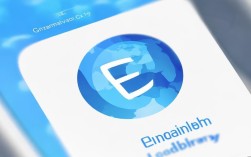(H1):雅思口语怎么称呼?从Part 1到Part 3,考官最爱的称呼全攻略!
Meta描述: 雅思口语考试中,称呼用错可能扣分!本文详解雅思口语Part 1/2/3中,如何正确称呼考官、人物及事物,附高分范例与避坑指南,助你口语更地道、更自信!

引言:别让“称呼”成为你雅思口语的“隐形扣分项”
“雅思口语怎么称呼?”——这个问题看似简单,却是无数烤鸭在备考时容易忽略的细节,很多考生在紧张的考试氛围中,要么全程使用“this”和“that”来指代一切,要么在不恰当的场合使用了过于随意的称呼,导致语言表达显得生硬、不自然,甚至影响考官对你的第一印象。
作为双语教学专家,我深知,语言的魅力在于其准确性和地道性,一个恰当的称呼,不仅能清晰地传递信息,更能展现你的语言素养和社交礼仪,我们就来彻底攻克“称呼”这个难题,让你在雅思口语的每个环节都能游刃有余,给考官留下专业、地道的好印象!
第一部分:核心问题——如何称呼雅思口语考官?
这是考生最关心,也最容易出错的一点,称呼考官的方式,直接反映了你对考试环境的判断和语言运用的得体性。
最佳实践:考官的姓氏 + Mr./Ms.
这是最安全、最专业、也最受考官欢迎的称呼方式。
-
如何操作:
- 进入考场时,考官通常会主动自我介绍:“Hello, my name is John Smith, and I'll be your examiner today.”
- 你需要认真记住他的姓氏 Smith。
- 在后续的交流中,当你需要与他进行眼神交流或特别指代他时,可以说:“Thank you, Mr. Smith.” 或 “As Ms. Smith mentioned earlier...”
-
为什么这是最佳选择?
- 专业得体: 这体现了你对考官的尊重,符合西方职场和学术场合的基本礼仪。
- 建立连接: 使用姓氏能瞬间拉近距离,让对话感觉更像一次自然的交流,而非冷冰冰的考试。
- 避免尴尬: 如果你没听清考官的名字,或者不确定性别,使用姓氏+称谓是万无一失的选择。
次优选择:直呼其名
在某些情况下,考官在自我介绍后,可能会用名字来称呼你,“Hi, Lily, I'm John. Please have a seat.” 这时,考官其实在暗示你可以用他的名字 John 来称呼他。
- 如何判断: 如果考官主动使用了名字,并且语气非常轻松友好,你可以自然地回应:“Nice to meet you, John.” 之后在对话中就可以用他的名字了。
- 风险提示: 如果考官的语气比较正式,或者只说了姓氏,坚持使用 Mr./Ms. + 姓氏 是最稳妥的。
错误示范:绝对不要这样做!
- Teacher: 这是中国学生最常犯的错误,在西方文化中,“Teacher” 是一种职业身份,而不是尊称,直接称呼考官 "Teacher" 会让他觉得你非常不熟悉英语国家的社交规范。
- Sir/Madam: 虽然这两个词表示尊敬,但在现代英语口语交流中,会显得有些过时、刻板,甚至有点像在酒店或餐厅对服务员说话,缺乏个人化的交流感。
- Examiner: 这是最糟糕的选择之一,考试中你是“candidate”,考官是“examiner”,直接称呼考官为 “examiner” 会让你听起来像一个在背诵考试规则的机器人,非常僵硬。
第二部分:分场景称呼策略——Part 1, 2, 3 怎么说?
解决了称呼考官的问题,我们再来看在口语考试的三个不同部分,如何称呼人物、事物和地点。
Part 1: Introduction & Interview (自我介绍与访谈)
这个部分的特点是生活化、问题具体,称呼的关键在于清晰、准确、自然。
-
称呼人物:
- 家人朋友: 直接使用名字。“I live with my parents, David and Mary.” 或者 “My best friend, Tom, is a huge fan of basketball.”
- 同事上司: 使用职位或 Mr./Ms. + 姓氏。“My manager, Ms. Wilson, is very supportive.” 或者 “I work with a team of designers.”
- 公众人物: 使用头衔或大名。“I admire Elon Musk, the CEO of Tesla.” 或者 “The singer, Taylor Swift, is very popular.”
-
称呼事物/物品:
- 单数: “This”, “It”
- 考官问: “Tell me about a book you like.”
- 你答: “This book, called 'The Alchemist', is one of my favorites.”
- 复数: “They”, “These”
- 考官问: “Do you like going to the cinema?”
- 你答: “Yes, they are a great way to relax.”
- 单数: “This”, “It”
Part 2: Individual Long Turn (个人陈述)
这个部分你需要根据一张提示卡进行1-2分钟的独白,称呼的关键在于描述生动、逻辑连贯。
-
核心技巧:使用“描述性短语”代替简单的“this/that”
- 错误示范: “This is a gift. I received it from my friend. It is useful.”
- 高分示范: “The gift I'm going to talk about is a smartwatch I received from my best friend on my last birthday. This particular gadget has become an essential part of my daily routine because it helps me track my fitness and stay connected.”
-
称呼地点/建筑:
- 使用“the + 名词”来特指。
- “I’d like to talk about the café near my university.”
- “The museum I visited last summer was truly impressive.”
- 使用“the + 名词”来特指。
-
称呼人物:
- 在描述中,可以加入身份信息。
- “My grandfather, who is a retired teacher, taught me how to play chess.”
- “I met a local artist whose work deeply inspired me.”
- 在描述中,可以加入身份信息。
Part 3: Two-way Discussion (深度讨论)
这个部分是围绕Part 2话题的抽象、深入探讨,称呼的关键在于学术化、逻辑性强、展现思辨能力。
-
称呼观点/现象:
- 使用 "The phenomenon of...", "This trend of...", "The issue of..."
- “The phenomenon of remote work has significantly changed our work-life balance.”
- “From this perspective, we can see that...”
- 使用代词指代上文提到的概念。
- “This is a complex issue with many facets.”
- “It can be argued that...”
- 使用 "The phenomenon of...", "This trend of...", "The issue of..."
-
称呼不同群体:
- 使用 "people who...", "the younger generation", "the older generation", "experts in this field"。
- “Many experts in this field believe that technology is the key to solving this problem.”
- “The younger generation, in my opinion, is more open to trying new things.”
- 使用 "people who...", "the younger generation", "the older generation", "experts in this field"。
-
引用考官观点:
- 当你回应考官的追问时,可以使用:
- “That's an interesting point. As you just mentioned, the economic factor cannot be ignored.”
- “Building on what you said about environmental protection, I think we should also consider...”
- 当你回应考官的追问时,可以使用:
第三部分:高分词汇与句式升级(称呼篇)
想让你的称呼“更上一层楼”?试试这些高级表达:
| 类别 | 基础表达 | 高分升级 |
|---|---|---|
| 指代事物 | this, that, these, those | This particular..., The aforementioned..., In this regard..., The former/latter... |
| 指代人物 | my friend, a person | A close acquaintance of mine, An individual I know, A prominent figure such as... |
| 指代观点 | I think, this idea | This notion, This perspective, The argument that..., The school of thought which suggests... |
| 指代地点 | this place, a city | This urban hub, This particular destination, The locality in question |
句式示范:
- 普通: This book is good.
- **升级:











